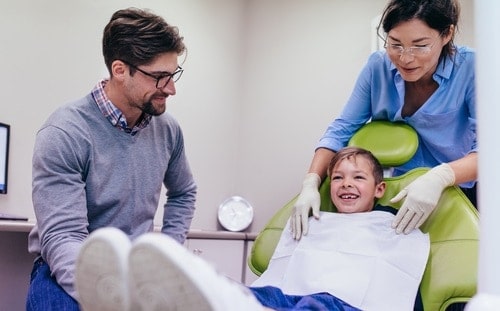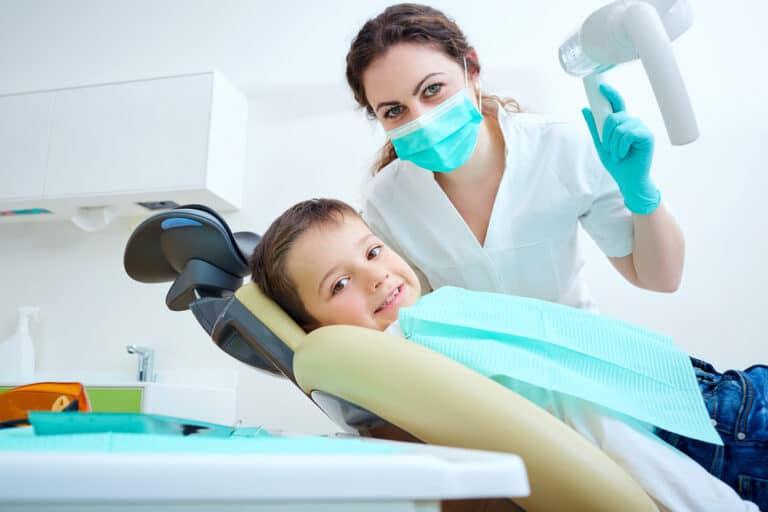Partial dentures are removable dental devices used to replace missing teeth, improving both function and appearance. They have an acrylic base that fits on the gums and metal clasps that attach to existing teeth.
Partial dentures are custom-made through precise measurements and skilled craftsmanship, offering a comfortable and secure fit. They help prevent teeth from shifting and support oral health. Their benefits include natural-looking smiles and ease of speech and chewing.
If you want to discover more about how partial dentures are made, their benefits, and caring tips, continue exploring the details provided.
What Is A Partial Denture?
Partial dentures are removable replacements for missing teeth, ideal when some natural teeth remain. They restore both function (chewing, speaking) and aesthetics (smile).
Types of Partial Dentures
When considering types of partial dentures, it is essential to understand the various options available to cater to individual oral health needs. Partial dentures are removable dental appliances used to replace one or more missing teeth. They can be categorised into different types based on their composition and design.
One common type of partial denture features metal clasps that attach to existing teeth, providing stability and support. These dentures typically have an acrylic base that rests on the gums and holds the replacement teeth in place.
Another type of partial denture is made from flexible materials that offer a more comfortable fit and better aesthetic appeal. These flexible dentures adapt well to the natural movements of the mouth and are gentle on the surrounding teeth.
Choosing the right type of partial denture is crucial for maintaining good dental health. It is important to consult with a dentist to determine the most suitable option that meets both functional and cosmetic requirements.
How Partial Dentures Are Made
Crafting partial dentures is a meticulous process that involves precise measurements and skilled craftsmanship to ensure optimal fit and functionality for each individual’s oral cavity. These dental prosthetics are custom-made in a dental laboratory by trained technicians following the guidance of a dentist.
The process typically begins with taking impressions of the patient’s mouth to create a mould. The base of the partial denture, often made of acrylic, is then formed to fit the mould accurately. Metal clasps may be incorporated to attach the denture to the natural teeth for stability securely.
Next, artificial teeth that closely resemble the patient’s natural teeth in colour and shape are added to the base. The dental technician carefully adjusts the fit and ensures that the partial denture aligns properly with the patient’s bite.
Once all adjustments are made, the partial denture undergoes a final polishing to give it a natural appearance and smooth texture. This meticulous process results in a customised dental appliance that restores function and aesthetics to the patient’s smile.
Benefits of Partial Dentures
The meticulous crafting of partial dentures culminates in a dental appliance that offers a range of benefits to individuals seeking to restore their smile’s function and aesthetics. Partial dentures are particularly beneficial for individuals with missing teeth, as they can effectively replace these gaps, providing a natural-looking smile.
By filling in spaces left by missing teeth, partial dentures also help to support the gums and prevent the remaining teeth from shifting out of place. This not only enhances the smile’s overall appearance but also contributes to better oral health.
Moreover, partial dentures are designed to be comfortable for the wearer. They are custom-made by a skilled dentist to fit securely in the mouth, ensuring ease of speech and chewing. Patients can enjoy the confidence of a complete smile without experiencing any discomfort.
Overall, the benefits of partial dentures extend beyond aesthetics to encompass functionality and oral health, making them a valuable solution for those dealing with missing teeth.
Adjusting to Partial Dentures
Adjusting to partial dentures requires patience and proper guidance from dental professionals to ensure a smooth transition to wearing and utilising the dental appliance effectively. Whether it’s an upper denture to replace missing teeth in the top jaw or a lower denture for the bottom jaw, adjusting to partial dentures can be a process.
Initially, there may be discomfort or awkwardness as the mouth adapts to the presence of the dentures. It’s essential to follow the denture solution provided by your dentist and attend follow-up appointments for adjustments.
For those with natural teeth remaining, it’s crucial to continue good oral hygiene practices to maintain oral health. Dental implants may also be an option in some cases to provide additional support and stability for the partial dentures.
Flexible dentures offer a more comfortable fit, making the adjustment period easier for many wearers. With the right care and guidance, adjusting to removable dental appliances like partial dentures can lead to improved confidence and function in daily activities.
Caring for Partial Dentures
Proper maintenance of partial dentures is essential for ensuring their longevity and effectiveness in improving oral function and aesthetics. Caring for partial dentures involves a combination of regular cleaning, good oral hygiene practices, and routine dental visits for adjustments and professional care.
Here are five key tips for maintaining and caring for your partial dentures:
- Daily Cleaning: Brush your partial dentures daily with a soft-bristled brush and mild soap to remove food particles and plaque.
- Care for Your Teeth and Gums: Continue to brush and floss your natural teeth to prevent decay and gum disease.
- Regular Dental Visits: Schedule regular check-ups with your dentist to ensure your partial dentures fit well and address any issues promptly.
- Proper Storage: When not in use, keep your partial dentures moist in water or a denture-soaking solution to prevent warping.
- Comfort and Fit: If you experience any discomfort or notice changes in fit, contact your dentist for adjustments to maintain comfort and functionality.
Partial Dentures Vs. Full Dentures
Understanding the differences between partial and full dentures is crucial when considering tooth replacement options. This will help you make an informed decision tailored to individual oral health needs.
Partial dentures are used when some natural teeth remain, filling in the gaps with artificial teeth attached to a gum-colored base. They are ideal for individuals who have some healthy teeth remaining and provide a natural look.
On the other hand, full dentures are used when all natural teeth are missing. They replace the entire set of teeth on either the upper or lower jaw. If necessary, full dentures can also be used for both jaws.
While partial dentures are more cost-effective and easier to adjust to, full dentures provide a complete teeth replacement solution. Both types require proper care to maintain oral health and function effectively.
Consulting with a dentist can help determine the most suitable option based on the number of remaining teeth, gum health, and jaw structure.
Alternatives to Partial Dentures
One alternative to partial dentures for replacing missing teeth is dental implants, which offer a permanent and natural-looking solution for restoring oral function and aesthetics. Dental implants are considered one of the best options for replacing missing teeth as they provide a long-term solution that can help maintain healthy teeth and improve the appearance of the smile.
Here are some alternatives to partial dentures:
- Implants: Provide a permanent solution for missing teeth.
- Acrylic Denture: A removable option made of acrylic material.
- Metal Base: Dentures with a metal base for added durability.
When considering alternatives to partial dentures, it’s essential to consult with a dentist to determine the most suitable option based on individual needs and oral health. Each alternative may have specific benefits and considerations, so exploring these options thoroughly is crucial for making an informed decision.
Final Thoughts on Partial Dentures
In conclusion, partial dentures are removable appliances used to replace missing teeth. They come in various types and are custom-made for each individual. Partial dentures offer benefits such as improved chewing and speech. Adjusting to wearing them may take some time, but proper care can help maintain their lifespan.
In need of partial dentures to restore your smile and improve your quality of life? Look no further than Ashfield Family Dental, located in Ashfield, NSW. Our experienced dentists in Ashfield is dedicated to crafting custom-made partial dentures that perfectly fit your needs. Don’t let missing teeth hold you back any longer – schedule a consultation with Ashfield Family Dental today and take the first step towards a confident and functional smile.




